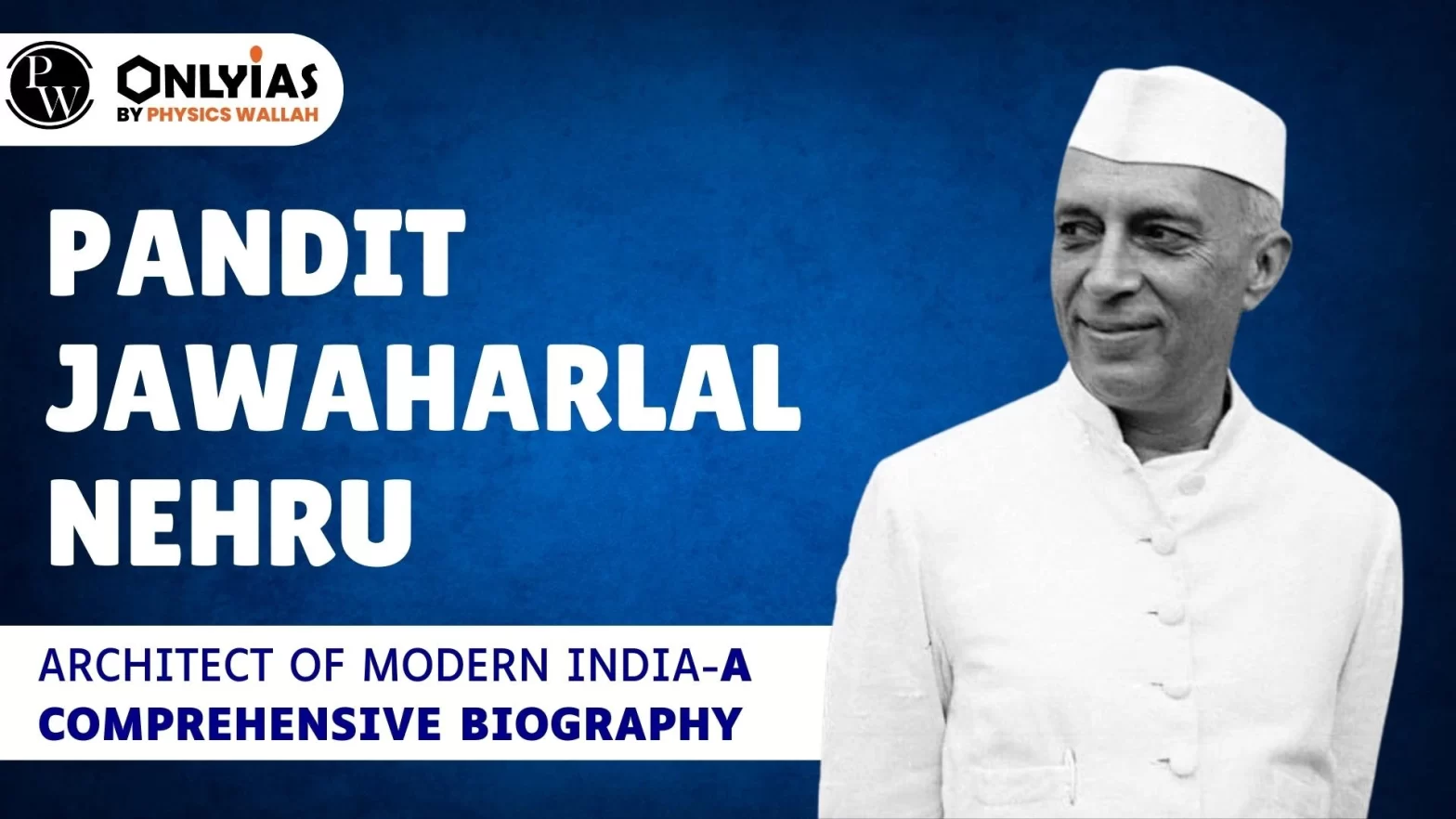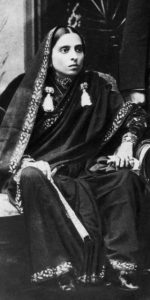
Jawaharlal Nehru Biography: Jawaharlal Nehru, often referred to as Pandit Nehru, was a prominent political leader and the first Prime Minister of independent India. He played a pivotal role in shaping the country’s destiny and guiding it through the critical early years of nation-building. Nehru’s visionary leadership, dedication to democracy, and commitment to social justice left a lasting impact on India’s political, social, and economic landscape.
Jawaharlal Nehru was born on November 14, 1889. He was born in Allahabad, British India, which is now known as Prayagraj, Uttar Pradesh, India. Nehru was a prominent leader in the Indian independence movement and the first Prime Minister of independent India. He played a crucial role in shaping modern India’s political and social landscape. Nehru’s tenure as Prime Minister lasted from 1947 until his death on May 27, 1964. He is often referred to as Pandit Nehru, and his birthday, November 14, is celebrated in India as Children’s Day in his honor.
Jawaharlal Nehru was born on November 14, 1889, in Allahabad, Uttar Pradesh, into a wealthy Kashmiri Pandit family. His father, Motilal Nehru, was a prominent lawyer and political figure. Nehru received his education in India and later went on to study law at Trinity College, Cambridge. His exposure to Western political ideas and philosophy during his time in England greatly influenced his outlook and laid the foundation for his future role as a statesman.
Jawaharlal Nehru came from a prominent Kashmiri Pandit family, and his lineage can be traced back to the Kashmir region in northern India. His father and mother both played important roles in shaping his political beliefs and instilling a sense of nationalism in him.
Motilal Nehru was a prominent lawyer and an influential political leader. He was born on May 6, 1861, in Agra, British India. Motilal Nehru actively participated in the Indian independence movement and was a key figure in the Indian National Congress. He served as the President of the Indian National Congress twice and played a crucial role in shaping the political landscape of India.

Swarup Rani Nehru, also known as Swarup Rani Thussu, was Motilal Nehru’s second wife. She was born on August 2, 1868, in Delhi, British India. Swarup Rani Nehru was actively involved in social and political work and supported her husband’s activities. She was known for her philanthropic work and played a significant role in promoting education and women’s rights.

Jawaharlal Nehru, the first Prime Minister of India, had one wife and one child. His wife’s name was Kamala Nehru, and they were married in 1916. Kamala Nehru was actively involved in the Indian independence movement and worked alongside her husband in various political activities.
Jawaharlal Nehru and Kamala Nehru had one daughter named Indira Priyadarshini, who later became known as Indira Gandhi. Indira Gandhi served as the Prime Minister of India from 1966 to 1977 and again from 1980 until her assassination in 1984. She played a significant role in shaping Indian politics and was a prominent figure in the Indian National Congress party.
Upon returning to India, Nehru became actively involved in the Indian National Congress, a political party leading the struggle for independence from British rule. He was deeply influenced by Mahatma Gandhi’s philosophy of nonviolence and became a staunch supporter of the Indian independence movement. Nehru’s charisma, intellect, and passion for social justice quickly propelled him to the forefront of the political arena.
Jawaharlal Nehru played a significant role in the independence struggle of India. He was a prominent leader of the Indian National Congress, which spearheaded the movement against British colonial rule.
Furthermore, Nehru played an active role in international politics, advocating for peace and non-alignment during the Cold War. He was one of the founding members of the Non-Aligned Movement and worked towards strengthening ties with other newly independent nations.
Jawaharlal Nehru served as the first Prime Minister of India from its independence in 1947 until his death in 1964. He was a central figure in the Indian independence movement and played a crucial role in shaping the early years of the newly independent nation.
Jawaharlal Nehru as the First Prime Minister of India
Jawaharlal Nehru’s policies and leadership style shaped India’s political, social, and economic landscape in its formative years. He was a proponent of secularism, democracy, and socialism and left a lasting impact on the country. Nehru’s daughter, Indira Gandhi, also served as Prime Minister of India, continuing his family’s political legacy.
It’s worth noting that India’s foreign policy has evolved since Nehru’s time, adapting to changing global dynamics and India’s own strategic interests. However, the principles of non-alignment and pursuit of an independent foreign policy remain influential in shaping India’s approach to international affairs.
Jawaharlal Nehru, the first Prime Minister of India, passed away on May 27, 1964. He was a prominent leader of the Indian independence movement and a close associate of Mahatma Gandhi. Nehru played a crucial role in shaping the future of independent India and was in office as the Prime Minister from August 15, 1947, the day India gained independence, until his death in 1964.
His death was a significant event in Indian history, and he is remembered for his contributions to nation-building, his vision of a modern and progressive India, and his dedication to democracy and secularism. After Nehru’s death, Lal Bahadur Shastri succeeded him as the Prime Minister of India.
Jawaharlal Nehru’s contributions to modern India are immeasurable. His vision of a democratic, secular, and socialist India set the foundation for the country’s political system and social fabric. Nehru’s commitment to social justice, education, and scientific temper led to the establishment of institutions such as the Indian Institutes of Technology (IITs), the Indian Institutes of Management (IIMs), and the All India Institute of Medical Sciences (AIIMS). He laid the groundwork for India’s industrialization and pushed for land reforms to uplift the rural poor.
Ready to boost your UPSC 2025 preparation? Join PW’s UPSC online courses today!
UPSC Exam 2025 Related Articles
UPSC Prelims 2025 Exam
UPSC Notification 2025
UPSC Preparation 2025
UPSC Eligibility 2025
UPSC Exam Pattern
UPSC Syllabus
<div class="new-fform">
</div>
